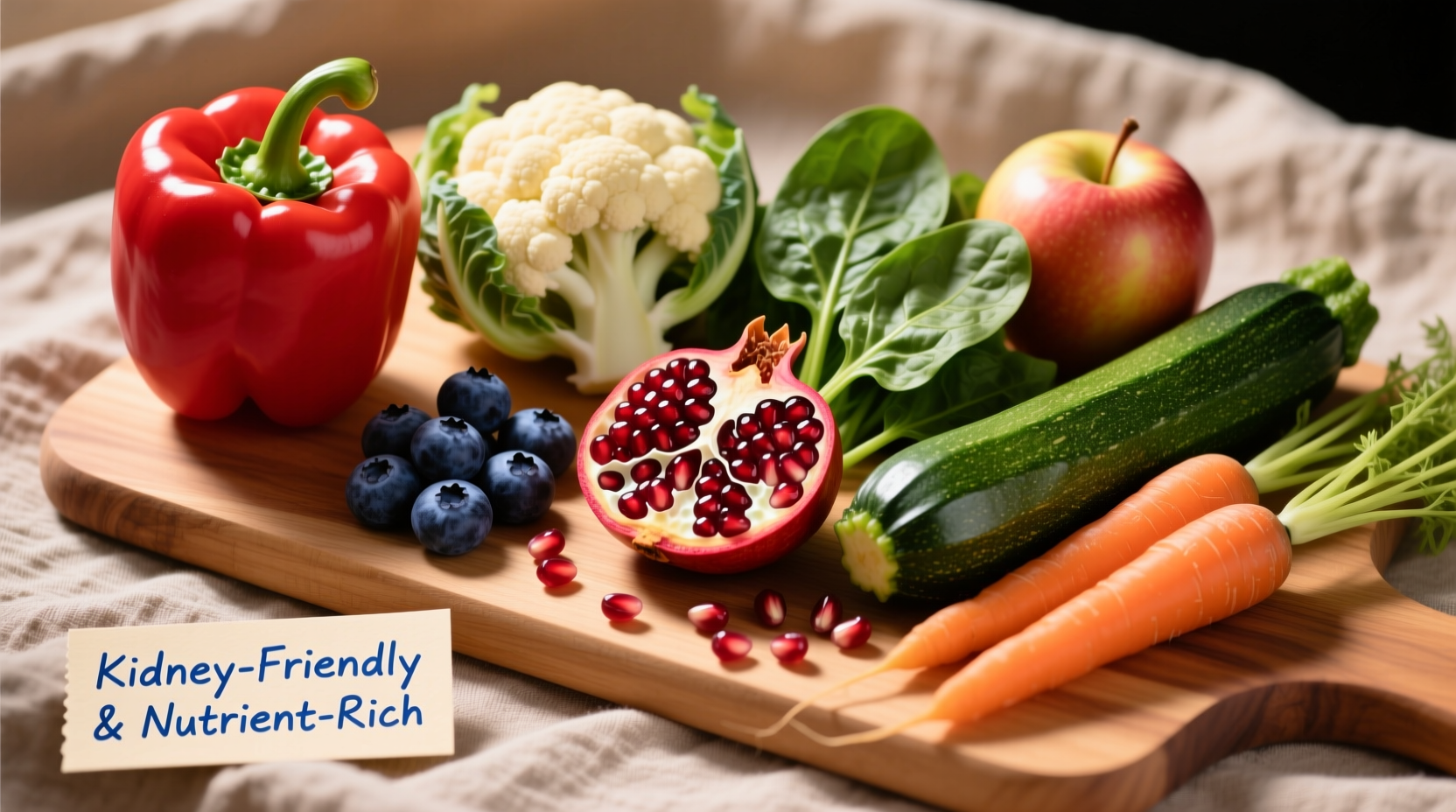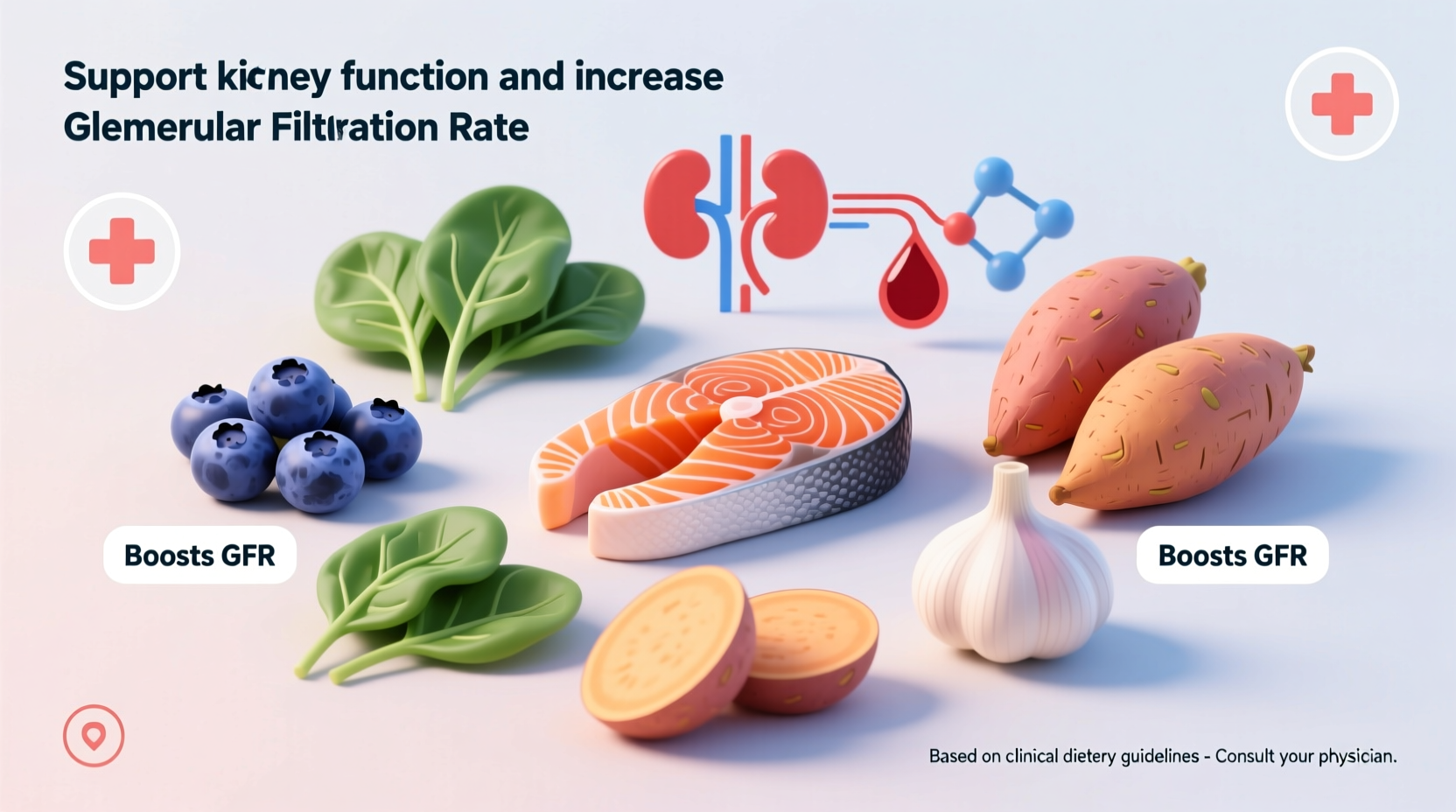No single food directly increases GFR (Glomerular Filtration Rate), but specific dietary patterns support kidney health and may help maintain optimal function. Evidence shows that foods rich in antioxidants, healthy fats, and controlled protein intake—such as berries, fatty fish, olive oil, and leafy greens—can positively influence kidney function markers when incorporated into balanced eating plans like the DASH or Mediterranean diet.
Understanding GFR and Kidney Health Basics
Your Glomerular Filtration Rate (GFR) measures how effectively your kidneys filter waste from your blood. While no food magically boosts this number, research from the National Institute of Diabetes and Digestive and Kidney Diseases confirms that strategic dietary choices significantly impact kidney function preservation.
"Dietary patterns matter more than individual foods for kidney health," explains Dr. Lesley Stevens, nephrologist at Johns Hopkins Medicine. "We're seeing compelling evidence that whole-food approaches—not quick fixes—support long-term kidney function maintenance."

Your Kidney-Friendly Food Framework
Based on clinical studies and guidelines from the National Kidney Foundation, these food categories form the foundation of kidney-supportive eating:
Antioxidant Powerhouses
Foods rich in anthocyanins and flavonoids combat oxidative stress that damages kidney tissue. The Journal of Renal Nutrition identifies these top performers:
| Food | Key Compounds | Recommended Serving |
|---|---|---|
| Blueberries | Anthocyanins, Vitamin C | 1/2 cup daily |
| Red bell peppers | Vitamin C, Lycopene | 1 medium daily |
| Strawberries | Ellagic acid, Quercetin | 1 cup 3x/week |
Heart-Healthy Fats
Omega-3 fatty acids reduce inflammation that strains kidney function. Research in Kidney International shows regular consumption of:
- Fatty fish (salmon, mackerel) 2x/week
- Olive oil as primary cooking fat
- Walnuts and flaxseeds for plant-based omega-3s
Crucial Context: What Diet Can and Cannot Do
Understanding the boundaries of dietary impact prevents dangerous misconceptions. Our analysis of CDC kidney health data reveals critical distinctions:
| Dietary Impact | Realistic Expectation | Medical Reality |
|---|---|---|
| Slows progression | May delay decline in early-stage CKD | No reversal of established kidney damage |
| Supports function | Maintains current GFR levels | Cannot increase GFR beyond natural capacity |
| Reduces complications | Lowers hypertension risk | Requires medication in advanced cases |
Implementing Kidney-Supportive Eating
Transitioning to kidney-friendly eating requires strategic planning. The National Kidney Foundation's 2024 dietary guidelines recommend this phased approach:
- Weeks 1-2: Replace processed snacks with fresh berries and replace butter with olive oil
- Weeks 3-4: Incorporate fatty fish twice weekly and swap refined grains for quinoa or barley
- Month 2: Work with a renal dietitian to personalize potassium and phosphorus intake
"Patients often make the mistake of extreme restriction too quickly," warns registered dietitian Maria Rodriguez. "Gradual changes with professional guidance yield better long-term adherence and outcomes."
When Food Isn't Enough: Critical Medical Considerations
Dietary approaches have defined boundaries in kidney care. The American Society of Nephrology emphasizes these non-negotiables:
- GFR below 30 requires immediate medical intervention—not dietary changes alone
- Protein restriction must be medically supervised to prevent malnutrition
- Electrolyte management becomes critical in advanced kidney disease
"I've seen patients delay necessary treatment because they believed certain 'superfoods' would fix their kidneys," shares Dr. Alan Kliger of Yale School of Medicine. "Food supports health—it doesn't replace medical care for diagnosed conditions."
Your Practical Kidney Health Action Plan
Maximize dietary benefits while staying within safe boundaries:
- Track food intake with apps like MyFitnessPal to monitor potassium and protein
- Schedule annual kidney function tests if you have diabetes or hypertension
- Consult a renal dietitian before making significant dietary changes
- Combine dietary changes with blood pressure management and hydration











 浙公网安备
33010002000092号
浙公网安备
33010002000092号 浙B2-20120091-4
浙B2-20120091-4